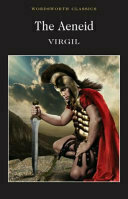
"I sing of arms and the man . . . " So begins the Aeneid, greatest of Western epic poems. Virgil's story of the journey of Aeneas has been a part of our cultural heritage for so many centuries that it's all too easy to lose sight of the poem itself--of its brilliantly cinematic depiction of the sack of Troy; the monstrous hunger of the harpies; the intensity of Dido's love for the hero, and the blackness of her despair; and the violence that Aeneas and his men must endure before they can settle in Italy and build the civilization whose roots we still claim as our own. This new translation brings Virgil's masterpiece newly to life for English-language readers. It's the first in centuries crafted by a translator who is first and foremost a poet, and it is a glorious thing. David Ferry has long been known as perhaps our greatest contemporary translator of Latin poetry, his translations of Virgil's Eclogues and Georgics having established themselves as much-admired standards. He brings to the Aeneid the same genius, rendering Virgil's formal metrical lines into an English that is familiar and alive. Yet in doing so, he surrenders none of the feel of the ancient world that resonates throughout the poem, and gives it the power that has drawn readers to it for centuries. In Ferry's hands, the Aeneid becomes once more a lively, dramatic poem of daring and adventure, of love and loss, of devotion and death. Never before have Virgil's twin gifts of poetic language and urgent, compelling storytelling been presented so powerfully for English-language readers. Ferry's Aeneid will be a landmark, a gift to longtime lovers of Virgil, and the perfect entry point for new readers. "Aurora rose, spreading her pitying light, And with it bringing back to sight the labors Of sad mortality, what men have done, And what has been done to them; and what they must do To mourn." The ships are ready to sail. The journey, from the fall of Troy to the birth of Rome, is about to begin. Join us.